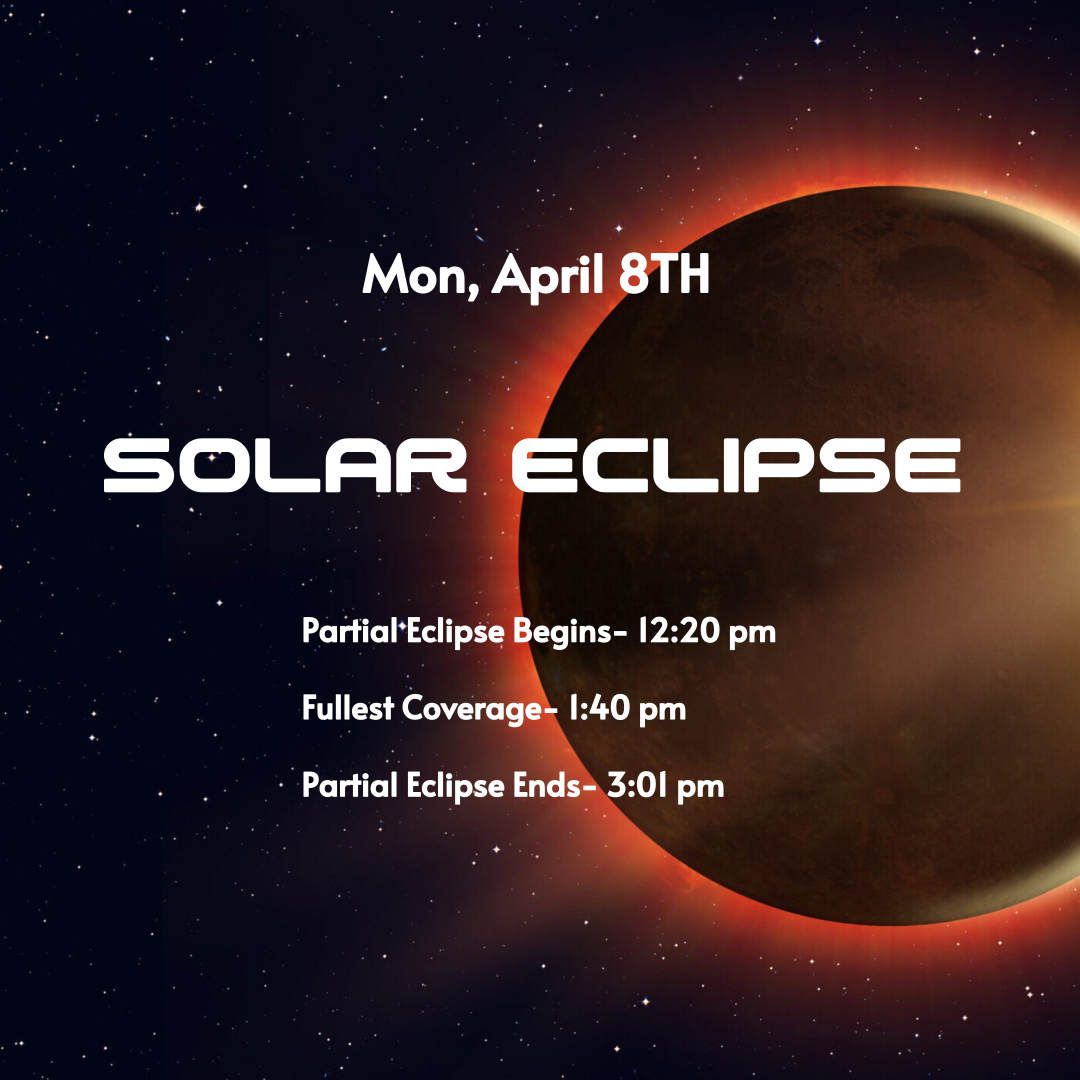
As optometrists, we're passionate about eye health and safety, especially when it comes to rare celestial events like solar eclipses. While witnessing the moon pass in front of the sun is a thrilling experience, it's crucial to prioritize eye safety to avoid potential damage. Here's everything you need to know about safely viewing solar eclipses:
Understanding Solar Eclipses
Solar eclipses occur when the moon moves between the Earth and the sun, casting a shadow on our planet. During this awe-inspiring event, the sun's rays can be partially or completely blocked, creating a unique celestial display.
Protecting Your Eyes
Looking directly at the sun, even during an eclipse, can cause serious eye damage, including solar retinopathy—a condition where the sun's ultraviolet rays burn the retina. To safeguard your vision:
Use Proper Eye Protection: Invest in certified solar viewing glasses or eclipse glasses that meet international safety standards (ISO 12312-2). These specialized glasses block harmful solar radiation while allowing you to safely observe the eclipse.
Avoid Homemade Filters: Homemade filters, such as sunglasses or photographic film, do not provide adequate protection against solar radiation and can increase the risk of eye injury.
Use Binoculars or Telescopes Safely: If you plan to use binoculars or telescopes to view the eclipse, ensure they are fitted with solar filters designed specifically for solar viewing. Never look through these devices without proper filtration.
Watch Safely Online: If you're unable to obtain certified eclipse glasses or prefer to observe the eclipse from indoors, many organizations livestream the event online, allowing you to enjoy the spectacle safely.
Patient Education and Awareness
As advocates for eye health, optometrists play a vital role in educating patients about the importance of eye safety during solar eclipses. Encourage your patients to:
- Plan ahead and obtain certified solar viewing glasses well in advance of the eclipse.
- Avoid using unfiltered cameras, smartphones, or other devices to photograph the eclipse without proper protection.
- Seek medical attention immediately if they experience any symptoms of eye discomfort or vision changes after viewing the eclipse.
Conclusion
Solar eclipses are incredible celestial phenomena that offer a unique opportunity to witness the beauty of our universe. By prioritizing eye safety and following these guidelines, you can enjoy the eclipse safely and protect your vision for years to come.
As your trusted optometrists, we're here to help you safeguard your eye health and enjoy the wonders of the cosmos responsibly. If you have any questions or concerns about eye safety during solar eclipses, please don't hesitate to reach out to us. Your vision is our priority.
Stay safe and enjoy the eclipse!
Express Vision








